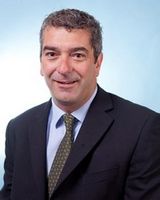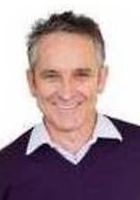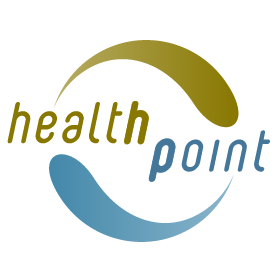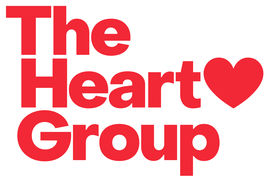Central Auckland, East Auckland, North Auckland, South Auckland, West Auckland, Northland > Private Hospitals & Specialists >
The Heart Group
Private Service, Cardiology
Today
8:00 AM to 8:00 PM.
Description
The Heart Group (previously Auckland Heart Group) provides a totally integrated cardiac service including the following:
- Acute admissions for unstable angina, myocardial infarction (heart attacks), arrhythmias (irregular heart beats), and heart failure.
- Ambulatory blood pressure and Holter monitoring
- Balloon Aortic Valvuloplasty (BAV)
- Balloon Mitral Valvuloplasty (BMV)
- Cardiac MRI
- Cardiology consultation - including ischaemic and valvular heart disease, risk factor assessment, hypertension, arrhythmias and heart failure
- Children’s Heart Specialists
- Conventional Coronary Angiography
- Coronary Angioplasty/ Stenting (PCI)
- Coronary Angioplasty including drug eluting stents
- Coronary Care Unit
- Echocardiogram (ECG) - Resting
- Electrophysiology (EP) studies and Radio Frequency Ablations (RFAs)
- Exercise and dobutamine stress echocardiography
- Exercise treadmill testing
- Holter/ Event Moniter
- Multislice CT Coronary Angiography
- Nuclear myocardial perfusion scans
- Pacemaker implantation
- Percutaneous closure of Atrial Septal Defects (ASDs) and Patent Forman Ovale (PFO)
- Renal and Carotid Stenting
- Transoesophageal echocardiography
- Vascular Ultrasound (renal, carotid and abdominal aorta)
The Heart Group have 6 clinics around Auckland for treadmill testing and consultation:
CENTRAL 1 Gilgit Road
NORTH Southern Cross Hospital - North Harbour
EAST EastMed
WEST Totara Health Services
SOUTH Ormiston Hospital
Pukekohe Family Health Centre
NORTHLAND 167 Maunu Road
Angiography and angioplasty are performed at Intra at Mercy Hospital, Epsom.
Echocardiography is provided at:
- 1 Gilgit Road, Epsom
- Southern Cross Hospital - North Harbour, Glenfield
- Ormiston Hospital - Botany
- Totara Health Services - New Lynn
- Pukekohe Family Health Centre - Pukekohe
The Heart Group provides a Monday – Friday 8.00am – 5.00pm on-call service for GP’s, providing advice and assistance.
What is Cardiology?
Cardiology is the specialty within medicine that looks at the heart and blood vessels. Your heart consists of 4 chambers, which are responsible for pumping blood to your lungs and then the rest of your body. The study of the heart includes the heart muscle (the myocardium), the valves within the heart between the chambers, the blood vessels that supply blood (and hence oxygen and nutrients) to the heart muscle, and the electrical system of the heart which is what controls the heart rate.
Consultants
Note: Please note below that some people are not available at all locations.
-

Dr Nezar Amir
Cardiologist
Available at Northern Clinic - Southern Cross North Harbour Campus, 212 Wairau Road, Wairau Valley, Auckland, Tōtara Health, 1 McCrae Way, New Lynn, Auckland
-

Dr Peter Barr
Cardiologist
Available at 1 Gilgit Road, Epsom, Auckland
-

Dr Daniel Chan
Cardiologist
Available at 167 Maunu Road, Maunu, Whangārei 0110
-

Dr Kok Lam Chow
Cardiologist
Available at Ormiston Hospital Specialist Centre & Consulting Suites, 125 Ormiston Road, Flat Bush, Auckland
-

Dr Arthur Coverdale
Cardiologist
Available at 1 Gilgit Road, Epsom, Auckland
-

Dr Luciana Marcondes
Cardiologist Paediatric Electrophysiologist
Available at 1 Gilgit Road, Epsom, Auckland
-

Prof Rob Doughty
Cardiologist
Available at 1 Gilgit Road, Epsom, Auckland
-

Dr Colin Edwards
Cardiologist
Available at 1 Gilgit Road, Epsom, Auckland, Northern Clinic - Southern Cross North Harbour Campus, 212 Wairau Road, Wairau Valley, Auckland, Tōtara Health, 1 McCrae Way, New Lynn, Auckland
-

Dr Chris Ellis
Cardiologist
Available at 1 Gilgit Road, Epsom, Auckland
-

Dr Shakiya Ershad
Cardiologist
Available at 1 Gilgit Road, Epsom, Auckland
-

Dr Sarah Fitzsimons
Cardiologist
Available at 1 Gilgit Road, Epsom, Auckland
-

Dr Ruvin Gabriel
Cardiologist
Available at 1 Gilgit Road, Epsom, Auckland, Ormiston Hospital Specialist Centre & Consulting Suites, 125 Ormiston Road, Flat Bush, Auckland, Pukekohe Health Centre, 10 West Street, Pukekohe, Auckland
-

Dr Tom Gentles
Paediatric Cardiologist
Available at 1 Gilgit Road, Epsom, Auckland
-

Dr Ivor Gerber
Cardiologist
Available at 1 Gilgit Road, Epsom, Auckland
-

Dr Wil Harrison
Cardiologist
Available at Ormiston Hospital Specialist Centre & Consulting Suites, 125 Ormiston Road, Flat Bush, Auckland, Pukekohe Health Centre, 10 West Street, Pukekohe, Auckland
-

Dr David Heaven
Cardiologist Electrophysiology
Available at 1 Gilgit Road, Epsom, Auckland
-

Dr Chethan Kasargod Prabhakar
Cardiologist
Available at 1 Gilgit Road, Epsom, Auckland
-

Dr Shaw (Anthony) Kueh
Cardiologist
Available at 1 Gilgit Road, Epsom, Auckland
-

Assoc Prof Malcolm Legget
Cardiologist
Available at 1 Gilgit Road, Epsom, Auckland, Northern Clinic - Southern Cross North Harbour Campus, 212 Wairau Road, Wairau Valley, Auckland
-

Assoc Prof Nigel Lever
Cardiologist
Available at 1 Gilgit Road, Epsom, Auckland
-

Dr Jen-Li Looi
Cardiologist
Available at Ormiston Hospital Specialist Centre & Consulting Suites, 125 Ormiston Road, Flat Bush, Auckland
-

Dr Boris Lowe
Cardiologist
Available at 1 Gilgit Road, Epsom, Auckland
-

Dr Andrew Martin
Cardiologist Electrophysiology
Available at 1 Gilgit Road, Epsom, Auckland
-

Dr Ross Nicholson
Paediatric Cardiologist
Available at 1 Gilgit Road, Epsom, Auckland
-

Dr Matthew O'Connor
Cardiologist Electrophysiology
Available at 1 Gilgit Road, Epsom, Auckland
-

Dr Thomas Pasley
Cardiologist
Available at Northern Clinic - Southern Cross North Harbour Campus, 212 Wairau Road, Wairau Valley, Auckland
-

Prof Peter Ruygrok
Cardiologist
Available at 1 Gilgit Road, Epsom, Auckland
-

Dr Jithendra Somaratne
Cardiologist
Available at 1 Gilgit Road, Epsom, Auckland
-

Dr Fiona Stewart
Cardiologist
Available at 1 Gilgit Road, Epsom, Auckland, eastMED, 188 St Heliers Bay Road, St Heliers, Auckland
-

Prof Ralph Stewart
Cardiologist
Available at 1 Gilgit Road, Epsom, Auckland
-

Dr Timothy Sutton
Cardiologist
Available at 1 Gilgit Road, Epsom, Auckland, Ormiston Hospital Specialist Centre & Consulting Suites, 125 Ormiston Road, Flat Bush, Auckland, Pukekohe Health Centre, 10 West Street, Pukekohe, Auckland
-

Dr Jamie Voss
Cardiologist Electrophysiology
Available at 1 Gilgit Road, Epsom, Auckland
-

Dr Cara Wasywich
Cardiologist
Available at 1 Gilgit Road, Epsom, Auckland, Tōtara Health, 1 McCrae Way, New Lynn, Auckland
-

Dr Miriam Wheeler
Cardiologist
Available at 1 Gilgit Road, Epsom, Auckland
-

Dr Jonathon White
Cardiologist
Available at 1 Gilgit Road, Epsom, Auckland
How do I access this service?
Referral, Contact us
Referral Expectations
Your GP will refer you to one of our clinics if they are concerned about your heart and want a specialist opinion.
Currently an appointment can be made within a few days.
For all appointments and bookings, please phone (09) 623 1020
Fees and Charges Description
The Heart Group is a Southern Cross, NIB and AIA Affiliated Provider for Cardiac Services. This means that if you have medical insurance cover with these insurance companies, we will complete and submit your claim directly to your medical insurance provider for you.
Charges vary from patient to patient depending on the type of insurance policy held. You are advised of the costs involved at the time of making your appointment.
For all enquiries regarding appointments and charges, please phone (09) 630 1020
Hours
8:00 AM to 8:00 PM.
| Mon – Thu | 8:00 AM – 8:00 PM |
|---|---|
| Fri | 8:00 AM – 5:00 PM |
Languages Spoken
Cantonese Chinese, Mandarin Chinese, English
Procedures / Treatments
You are likely to have blood tests done before coming to clinic to check your cholesterol level and looking for evidence of diabetes. These blood tests are done "fasting" which means you have the blood taken in the morning on an empty stomach before breakfast.
You are likely to have blood tests done before coming to clinic to check your cholesterol level and looking for evidence of diabetes. These blood tests are done "fasting" which means you have the blood taken in the morning on an empty stomach before breakfast.
Your heart rate is controlled by a complex electrical system within the heart muscle which drives it to go faster when you exert yourself and slower when you rest. A number of conditions can affect the heart rate or rhythm. Heart rate simply refers to how fast your heart is beating. Heart rhythm refers to the electrical source that is driving the heart rate and whether or not it is regular or irregular. As some types of arrhythmias can cause you to faint without warning, your doctor may restrict your driving until the condition is controlled. Some common terms Sinus rhythm is the normal rhythm Arrhythmia means abnormal rhythm Fibrillation means irregular rhythm or quivering of one part of the heart Bradycardia means slow heart rate Tachycardia means fast heart rate Paroxysmal means the arrhythmia comes and goes Tachycardia The most common of these is atrial fibrillation. This is where your heart rhythm is irregular and often too fast. Symptoms include fatigue, palpitations (where you are aware of your heart racing or pounding), dizziness and breathlessness. Other tachycardias include supraventricular tachycardia (SVT) or ventricular tachycardia (VT). These have similar symptoms as atrial fibrillation but can also cause you to lose consciousness (faint). Bradycardia The most common form of this is called heart block. This is because messages from the electrical generator of the heart don't get through efficiently to the rest of the heart and hence it goes very slowly or can pause. Symptoms of the heart going too slowly include feeling tired, breathless or fainting. Tests Tests to diagnose what sort of arrhythmia you have include an electrocardiogram (ECG). This trace of the heart's electrical activity gives the diagnosis of the source of the arrhythmia. This is often normal at rest and more extensive testing is needed to try and catch the arrhythmia especially if it is intermittent. an Ambulatory ECG. This can be performed with a Holter monitor which monitors your heart for rhythm abnormalities during normal activity for an uninterrupted 24-hour period. During the test, electrodes attached to your chest are connected to a portable recorder — about the size of a paperback book — that's attached to your belt or hung from a shoulder strap. Another form of ambulatory ECG test is an Event recorder which covers 1-2 weeks. You wear a monitor (much smaller than a Holter monitor) and if you have any symptoms, such as dizziness, you press a button on a recording device which saves the recording of your heart rhythm made in the minutes leading up to and during your symptoms. Because you can wear this for a longer period of time it has a higher rate of catching your abnormal rhythm. Treatment Most treatments for tachycardias consist of medication to stop the abnormal rhythm or make it slower if and when it occurs. Atrial fibrillation, if you have other problems, can increase your risk of stroke so blood-thinning medication is often used as well. If you have bradycardia you may be referred to the surgeons for a pacemaker. This is a small operation where a battery powered device is placed under the skin with wires that lead to your heart and provide it with electrical stimulation to prevent it from going too slow. You can't feel it doing this but will be aware of a small flat lump under your skin just below your collar bone.
Your heart rate is controlled by a complex electrical system within the heart muscle which drives it to go faster when you exert yourself and slower when you rest. A number of conditions can affect the heart rate or rhythm. Heart rate simply refers to how fast your heart is beating. Heart rhythm refers to the electrical source that is driving the heart rate and whether or not it is regular or irregular. As some types of arrhythmias can cause you to faint without warning, your doctor may restrict your driving until the condition is controlled. Some common terms Sinus rhythm is the normal rhythm Arrhythmia means abnormal rhythm Fibrillation means irregular rhythm or quivering of one part of the heart Bradycardia means slow heart rate Tachycardia means fast heart rate Paroxysmal means the arrhythmia comes and goes Tachycardia The most common of these is atrial fibrillation. This is where your heart rhythm is irregular and often too fast. Symptoms include fatigue, palpitations (where you are aware of your heart racing or pounding), dizziness and breathlessness. Other tachycardias include supraventricular tachycardia (SVT) or ventricular tachycardia (VT). These have similar symptoms as atrial fibrillation but can also cause you to lose consciousness (faint). Bradycardia The most common form of this is called heart block. This is because messages from the electrical generator of the heart don't get through efficiently to the rest of the heart and hence it goes very slowly or can pause. Symptoms of the heart going too slowly include feeling tired, breathless or fainting. Tests Tests to diagnose what sort of arrhythmia you have include an electrocardiogram (ECG). This trace of the heart's electrical activity gives the diagnosis of the source of the arrhythmia. This is often normal at rest and more extensive testing is needed to try and catch the arrhythmia especially if it is intermittent. an Ambulatory ECG. This can be performed with a Holter monitor which monitors your heart for rhythm abnormalities during normal activity for an uninterrupted 24-hour period. During the test, electrodes attached to your chest are connected to a portable recorder — about the size of a paperback book — that's attached to your belt or hung from a shoulder strap. Another form of ambulatory ECG test is an Event recorder which covers 1-2 weeks. You wear a monitor (much smaller than a Holter monitor) and if you have any symptoms, such as dizziness, you press a button on a recording device which saves the recording of your heart rhythm made in the minutes leading up to and during your symptoms. Because you can wear this for a longer period of time it has a higher rate of catching your abnormal rhythm. Treatment Most treatments for tachycardias consist of medication to stop the abnormal rhythm or make it slower if and when it occurs. Atrial fibrillation, if you have other problems, can increase your risk of stroke so blood-thinning medication is often used as well. If you have bradycardia you may be referred to the surgeons for a pacemaker. This is a small operation where a battery powered device is placed under the skin with wires that lead to your heart and provide it with electrical stimulation to prevent it from going too slow. You can't feel it doing this but will be aware of a small flat lump under your skin just below your collar bone.
- Sinus rhythm is the normal rhythm
- Arrhythmia means abnormal rhythm
- Fibrillation means irregular rhythm or quivering of one part of the heart
- Bradycardia means slow heart rate
- Tachycardia means fast heart rate
- Paroxysmal means the arrhythmia comes and goes
- an electrocardiogram (ECG). This trace of the heart's electrical activity gives the diagnosis of the source of the arrhythmia. This is often normal at rest and more extensive testing is needed to try and catch the arrhythmia especially if it is intermittent.
- an Ambulatory ECG. This can be performed with a Holter monitor which monitors your heart for rhythm abnormalities during normal activity for an uninterrupted 24-hour period. During the test, electrodes attached to your chest are connected to a portable recorder — about the size of a paperback book — that's attached to your belt or hung from a shoulder strap. Another form of ambulatory ECG test is an Event recorder which covers 1-2 weeks. You wear a monitor (much smaller than a Holter monitor) and if you have any symptoms, such as dizziness, you press a button on a recording device which saves the recording of your heart rhythm made in the minutes leading up to and during your symptoms. Because you can wear this for a longer period of time it has a higher rate of catching your abnormal rhythm.
This refers to narrowing of the arteries that supply blood to the heart muscle. The heart, like all other organs in the body, needs a constant supply of oxygen and energy. Narrowed arteries are unable to keep up with the demand needed to supply the heart muscle with blood. This can cause damage to the heart muscle if prolonged. The most common symptom of this problem is chest pain that occurs when you exert yourself (angina). Typical angina chest pain is a heavy sensation in your chest associated with shortness of breath. It sometimes radiates to your arms and can make you feel like being sick, dizzy or sweaty. Not everybody experiences the same sensation and any one of those symptoms can represent angina. If your GP thinks you may have angina they will refer you for an assessment to plan treatment. Heart Attack (Myocardial Infarction) If an attack of angina lasts for more than 20 minutes then you may be having a heart attack. This is when a piece of the heart muscle has been deprived of oxygen for so long that it can die resulting in permanent damage to your heart and in some cases death. There are treatments available in hospital that can prevent heart attacks and save lives so if you have chest pain or symptoms of angina that last for more than 20 minutes you should call an ambulance and go to hospital as soon as possible. Am I likely to have cardiovascular disease? There are several risk factors that are scientifically proven to be associated with this disease. However even if you don’t have any of the following it could still happen to you. You are more likely to have cardiovascular disease if you have any of the following: Are or have been a smoker Diabetes High blood pressure High cholesterol A family history of the disease Are older (your risk increases as you get older) Treatment consists of medications to protect the heart and its blood vessels. These include aspirin which makes the blood less sticky and prone to clots, medication to lower your cholesterol (even if it isn’t very high this is still helpful), medication to make your heart go slower and to open the blood vessels. You will be given a nitro lingual spray to carry with you with instructions of what to do if you have angina. You will be given advice on diet changes that can protect the heart as well as stop smoking programs. If you have had a heart attack you will be offered cardiac rehabilitation classes with a trained physiotherapist. Depending on tests you may have procedures offered to surgically correct the narrowed blood vessels. The cardiologist and your GP often share follow-up for this condition.
This refers to narrowing of the arteries that supply blood to the heart muscle. The heart, like all other organs in the body, needs a constant supply of oxygen and energy. Narrowed arteries are unable to keep up with the demand needed to supply the heart muscle with blood. This can cause damage to the heart muscle if prolonged. The most common symptom of this problem is chest pain that occurs when you exert yourself (angina). Typical angina chest pain is a heavy sensation in your chest associated with shortness of breath. It sometimes radiates to your arms and can make you feel like being sick, dizzy or sweaty. Not everybody experiences the same sensation and any one of those symptoms can represent angina. If your GP thinks you may have angina they will refer you for an assessment to plan treatment. Heart Attack (Myocardial Infarction) If an attack of angina lasts for more than 20 minutes then you may be having a heart attack. This is when a piece of the heart muscle has been deprived of oxygen for so long that it can die resulting in permanent damage to your heart and in some cases death. There are treatments available in hospital that can prevent heart attacks and save lives so if you have chest pain or symptoms of angina that last for more than 20 minutes you should call an ambulance and go to hospital as soon as possible. Am I likely to have cardiovascular disease? There are several risk factors that are scientifically proven to be associated with this disease. However even if you don’t have any of the following it could still happen to you. You are more likely to have cardiovascular disease if you have any of the following: Are or have been a smoker Diabetes High blood pressure High cholesterol A family history of the disease Are older (your risk increases as you get older) Treatment consists of medications to protect the heart and its blood vessels. These include aspirin which makes the blood less sticky and prone to clots, medication to lower your cholesterol (even if it isn’t very high this is still helpful), medication to make your heart go slower and to open the blood vessels. You will be given a nitro lingual spray to carry with you with instructions of what to do if you have angina. You will be given advice on diet changes that can protect the heart as well as stop smoking programs. If you have had a heart attack you will be offered cardiac rehabilitation classes with a trained physiotherapist. Depending on tests you may have procedures offered to surgically correct the narrowed blood vessels. The cardiologist and your GP often share follow-up for this condition.
Am I likely to have cardiovascular disease?
- Are or have been a smoker
- Diabetes
- High blood pressure
- High cholesterol
- A family history of the disease
- Are older (your risk increases as you get older)
You will be given advice on diet changes that can protect the heart as well as stop smoking programs.
If you have had a heart attack you will be offered cardiac rehabilitation classes with a trained physiotherapist.
Depending on tests you may have procedures offered to surgically correct the narrowed blood vessels.
The cardiologist and your GP often share follow-up for this condition.
This test is performed by a cardiologist in a sterile operating theatre environment. Most people will need to have routine tests before the procedure. These tests may require separate appointments and are usually planned the day before or the day of the procedure. You will be asked not to eat or drink after midnight the evening before the procedure. You are not given a general anaesthetic but may have some medication to relax you if needed. Local anaesthetic is put into an area of skin to the side of your groin. A needle and then tube are fed into an artery in the groin and advanced through the blood vessels to the heart. Dye is then injected so that the heart and blood vessels can be seen on X-ray. X-rays and measurements are then taken giving the doctors information about the state of your heart and the exact nature of any narrowed blood vessels. This allows them to plan the best form of treatment to prevent heart attacks and control any symptoms you may have. After the procedure you will have to lay flat (without bending your legs) while the groin sheath is in place. After the groin sheath is removed, you must lay flat for a period of time to prevent bleeding.
This test is performed by a cardiologist in a sterile operating theatre environment. Most people will need to have routine tests before the procedure. These tests may require separate appointments and are usually planned the day before or the day of the procedure. You will be asked not to eat or drink after midnight the evening before the procedure. You are not given a general anaesthetic but may have some medication to relax you if needed. Local anaesthetic is put into an area of skin to the side of your groin. A needle and then tube are fed into an artery in the groin and advanced through the blood vessels to the heart. Dye is then injected so that the heart and blood vessels can be seen on X-ray. X-rays and measurements are then taken giving the doctors information about the state of your heart and the exact nature of any narrowed blood vessels. This allows them to plan the best form of treatment to prevent heart attacks and control any symptoms you may have. After the procedure you will have to lay flat (without bending your legs) while the groin sheath is in place. After the groin sheath is removed, you must lay flat for a period of time to prevent bleeding.
Most people will need to have routine tests before the procedure. These tests may require separate appointments and are usually planned the day before or the day of the procedure.
You will be asked not to eat or drink after midnight the evening before the procedure.
You are not given a general anaesthetic but may have some medication to relax you if needed. Local anaesthetic is put into an area of skin to the side of your groin. A needle and then tube are fed into an artery in the groin and advanced through the blood vessels to the heart. Dye is then injected so that the heart and blood vessels can be seen on X-ray. X-rays and measurements are then taken giving the doctors information about the state of your heart and the exact nature of any narrowed blood vessels. This allows them to plan the best form of treatment to prevent heart attacks and control any symptoms you may have.
After the procedure you will have to lay flat (without bending your legs) while the groin sheath is in place. After the groin sheath is removed, you must lay flat for a period of time to prevent bleeding.
Echocardiography is also referred to as cardiac ultrasound. This test is performed by a specially trained technician. It is a test that uses high frequency sound waves to generate pictures of your heart. During the test, you generally lie on your left side; gel is applied to your skin to increase the conductivity of the ultrasound waves. A technician then moves the small, plastic transducer over your chest. The test is painless and generally takes 25 to 45 minutes. The machine then analyses the information and develops images of your heart. These images are seen on a monitor. This is referred to as an echocardiogram. Echocardiography can help in the diagnosis of many heart problems including cardiovascular disease, previous heart attacks, valve disorders, weakened heart muscle, holes between heart chambers, fluid around the heart (pericardial effusion). If doctors are looking for evidence of coronary artery disease they may perform variations of this test which include: Exercise echocardiography - a technique used to view how your heart works under stress. It compares how your heart works when stressed by exercise versus when it is at rest. The ultrasound scan is conducted before you exercise and immediately after you stop using a standard treadmill. Dobutamine stress echocardiography - if you’re unable to exercise for the above test, you might be given medication to simulate the effects of exercise. During this test, an echocardiogram initially is performed when you’re at rest. Then dobutamine is given to you via a needle into a vein in your arm. Its effect is to make your heart work harder and faster just like with exercise. After it has taken effect, the echocardiogram is repeated. The effect wears off very quickly.
Echocardiography is also referred to as cardiac ultrasound. This test is performed by a specially trained technician. It is a test that uses high frequency sound waves to generate pictures of your heart. During the test, you generally lie on your left side; gel is applied to your skin to increase the conductivity of the ultrasound waves. A technician then moves the small, plastic transducer over your chest. The test is painless and generally takes 25 to 45 minutes. The machine then analyses the information and develops images of your heart. These images are seen on a monitor. This is referred to as an echocardiogram. Echocardiography can help in the diagnosis of many heart problems including cardiovascular disease, previous heart attacks, valve disorders, weakened heart muscle, holes between heart chambers, fluid around the heart (pericardial effusion). If doctors are looking for evidence of coronary artery disease they may perform variations of this test which include: Exercise echocardiography - a technique used to view how your heart works under stress. It compares how your heart works when stressed by exercise versus when it is at rest. The ultrasound scan is conducted before you exercise and immediately after you stop using a standard treadmill. Dobutamine stress echocardiography - if you’re unable to exercise for the above test, you might be given medication to simulate the effects of exercise. During this test, an echocardiogram initially is performed when you’re at rest. Then dobutamine is given to you via a needle into a vein in your arm. Its effect is to make your heart work harder and faster just like with exercise. After it has taken effect, the echocardiogram is repeated. The effect wears off very quickly.
Echocardiography is also referred to as cardiac ultrasound. This test is performed by a specially trained technician. It is a test that uses high frequency sound waves to generate pictures of your heart. During the test, you generally lie on your left side; gel is applied to your skin to increase the conductivity of the ultrasound waves. A technician then moves the small, plastic transducer over your chest. The test is painless and generally takes 25 to 45 minutes.
The machine then analyses the information and develops images of your heart. These images are seen on a monitor. This is referred to as an echocardiogram.
Echocardiography can help in the diagnosis of many heart problems including cardiovascular disease, previous heart attacks, valve disorders, weakened heart muscle, holes between heart chambers, fluid around the heart (pericardial effusion).
If doctors are looking for evidence of coronary artery disease they may perform variations of this test which include:
- Exercise echocardiography - a technique used to view how your heart works under stress. It compares how your heart works when stressed by exercise versus when it is at rest. The ultrasound scan is conducted before you exercise and immediately after you stop using a standard treadmill.
- Dobutamine stress echocardiography - if you’re unable to exercise for the above test, you might be given medication to simulate the effects of exercise. During this test, an echocardiogram initially is performed when you’re at rest. Then dobutamine is given to you via a needle into a vein in your arm. Its effect is to make your heart work harder and faster just like with exercise. After it has taken effect, the echocardiogram is repeated. The effect wears off very quickly.
An ECG is a recording of your heart's electrical activity. Electrode patches are attached to your skin to measure the electrical impulses given off by your heart. The result is a trace that can be read by a doctor. It can give information of previous heart attacks or problems with the heart rhythm. Depending on your history, examination and ECG, you may go on to have other tests.
An ECG is a recording of your heart's electrical activity. Electrode patches are attached to your skin to measure the electrical impulses given off by your heart. The result is a trace that can be read by a doctor. It can give information of previous heart attacks or problems with the heart rhythm. Depending on your history, examination and ECG, you may go on to have other tests.
Depending on your history, examination and ECG, you may go on to have other tests.
An electrocardiogram (ECG) done when you are resting may be normal even when you have cardiovascular disease. During an exercise ECG the heart is made to work harder so that if there is any narrowing of the blood vessels resulting in poor blood supply it is more likely to be picked up on the tracing as your heart goes faster. For this test you have to work harder which involves walking on a treadmill while your heart is monitored. The treadmill gets faster with time but you can stop at anytime. This test is supervised and interpreted by a doctor as you go. This test is used to see if you have any evidence of cardiovascular disease and can give the doctor some idea as to how severe it might be so as to direct further tests and possible treatment.
An electrocardiogram (ECG) done when you are resting may be normal even when you have cardiovascular disease. During an exercise ECG the heart is made to work harder so that if there is any narrowing of the blood vessels resulting in poor blood supply it is more likely to be picked up on the tracing as your heart goes faster. For this test you have to work harder which involves walking on a treadmill while your heart is monitored. The treadmill gets faster with time but you can stop at anytime. This test is supervised and interpreted by a doctor as you go. This test is used to see if you have any evidence of cardiovascular disease and can give the doctor some idea as to how severe it might be so as to direct further tests and possible treatment.
An electrocardiogram (ECG) done when you are resting may be normal even when you have cardiovascular disease. During an exercise ECG the heart is made to work harder so that if there is any narrowing of the blood vessels resulting in poor blood supply it is more likely to be picked up on the tracing as your heart goes faster. For this test you have to work harder which involves walking on a treadmill while your heart is monitored. The treadmill gets faster with time but you can stop at anytime. This test is supervised and interpreted by a doctor as you go. This test is used to see if you have any evidence of cardiovascular disease and can give the doctor some idea as to how severe it might be so as to direct further tests and possible treatment.
Heart failure refers to the heart failing to pump efficiently. There are many diseases that cause this including cardiovascular disease, high blood pressure, viral infections, alcohol, and diseases affecting the valves of the heart. When the heart is inefficient a number of symptoms occur depending on the cause and severity of the condition. The main symptoms are tiredness, breathlessness on exertion or lying flat, and ankle swelling. Doctors often refer to oedema, which means fluid retention usually in your feet or lungs as a result of the heart not pumping efficiently. Tests looking for possible causes of heart failure include: · Chest X-ray · Electrocardiogram (ECG) · Echocardiogram (Cardiac ultrasound) · Angiogram Treatment You are likely to have several medications over time, started and monitored by your cardiologist and GP. These include medication to control the amount of fluid that builds up (diuretics), medication to protect your heart and slow it down as well as to thin your blood. You will often be referred to a dietician or given advice about restricting the amount of fluid and salt you take as this can contribute to symptoms. You can also be involved in cardiac rehabilitation programmes run by trained physiotherapists. You will be given reading material to learn more about your disease. The cardiologist and your GP usually share follow up for this condition.
Heart failure refers to the heart failing to pump efficiently. There are many diseases that cause this including cardiovascular disease, high blood pressure, viral infections, alcohol, and diseases affecting the valves of the heart. When the heart is inefficient a number of symptoms occur depending on the cause and severity of the condition. The main symptoms are tiredness, breathlessness on exertion or lying flat, and ankle swelling. Doctors often refer to oedema, which means fluid retention usually in your feet or lungs as a result of the heart not pumping efficiently. Tests looking for possible causes of heart failure include: · Chest X-ray · Electrocardiogram (ECG) · Echocardiogram (Cardiac ultrasound) · Angiogram Treatment You are likely to have several medications over time, started and monitored by your cardiologist and GP. These include medication to control the amount of fluid that builds up (diuretics), medication to protect your heart and slow it down as well as to thin your blood. You will often be referred to a dietician or given advice about restricting the amount of fluid and salt you take as this can contribute to symptoms. You can also be involved in cardiac rehabilitation programmes run by trained physiotherapists. You will be given reading material to learn more about your disease. The cardiologist and your GP usually share follow up for this condition.
Your heart consists of 4 chambers that receive and send blood to the lungs and body. Disorders affecting valves can either cause stenosis (a narrowing) or regurgitation (leakage after the valve has closed). Depending on what valve is involved and how severe the damage is it may result in symptoms of heart failure (see above), as it makes the heart pump inefficiently. Suspicion of a heart valve problem is usually picked up by your doctor when they listen to your heart and hear a murmur. A murmur is heard with the stethoscope and is turbulence of blood flow that occurs through a narrowed or leaky valve. Not all heart murmurs mean serious problems but are best investigated further. The echocardiogram is the main test to diagnose what valve is involved and how severe it is. Treatment depends on the type and severity of the valve lesion.You may simply be monitored over years to see if anything changes. Some conditions require medication to thin the blood or treat any complicating heart problems. You may be referred to a heart surgeon for consideration of a valve replacement or dilatation of a narrowed valve.
Your heart consists of 4 chambers that receive and send blood to the lungs and body. Disorders affecting valves can either cause stenosis (a narrowing) or regurgitation (leakage after the valve has closed). Depending on what valve is involved and how severe the damage is it may result in symptoms of heart failure (see above), as it makes the heart pump inefficiently. Suspicion of a heart valve problem is usually picked up by your doctor when they listen to your heart and hear a murmur. A murmur is heard with the stethoscope and is turbulence of blood flow that occurs through a narrowed or leaky valve. Not all heart murmurs mean serious problems but are best investigated further. The echocardiogram is the main test to diagnose what valve is involved and how severe it is. Treatment depends on the type and severity of the valve lesion.You may simply be monitored over years to see if anything changes. Some conditions require medication to thin the blood or treat any complicating heart problems. You may be referred to a heart surgeon for consideration of a valve replacement or dilatation of a narrowed valve.
Treatment depends on the type and severity of the valve lesion.You may simply be monitored over years to see if anything changes. Some conditions require medication to thin the blood or treat any complicating heart problems. You may be referred to a heart surgeon for consideration of a valve replacement or dilatation of a narrowed valve.
Parking
Patient parking is provided at all locations.
- 1 Gilgit Road - entry from Gilgit Road only
- New Lynn: patient parking is available on Level 1, Totara Health Services, 1 McCrae Way.
Pharmacy
Other
| SERVICE & HOURS | |
|
CENTRAL |
Monday to Friday including evenings and Saturdays: Consulting & Echocardiography Phone 09 623 1020 |
| NORTH | Southern Cross Hospital, North Harbour Weekday Clinics Ph 09 623 1020 |
| EAST | EastMed, St Heliers Weekday Clinics Ph 09 623 1020 |
| WEST | Totara Health Services, New Lynn Weekday Clinics Ph 09 623 1020 |
| SOUTH |
Ormiston Hospital, Botany |
| SOUTH |
Pukekohe Family Health Centre Weekday Clinics Ph 09 623 1020 |
Website
Contact Details
eastMED, 188 St Heliers Bay Road, St Heliers, Auckland
Central Auckland
8:00 AM to 8:00 PM.
-
Phone
(09) 623 1020
-
Fax
(09) 623 1030
Healthlink EDI
akhearta
Email
Website
188 St Heliers Bay Road
St Heliers
Auckland 1071
Street Address
188 St Heliers Bay Road
St Heliers
Auckland 1071
Postal Address
PO Box 99500
Newmarket
Auckland 1149
1 Gilgit Road, Epsom, Auckland
Central Auckland
8:00 AM to 8:00 PM.
-
Phone
(09) 623 1020
-
Fax
(09) 623 1030
Healthlink EDI
akhearta
Email
Website
Northern Clinic - Southern Cross North Harbour Campus, 212 Wairau Road, Wairau Valley, Auckland
North Auckland
8:00 AM to 8:00 PM.
-
Phone
(09) 623 1020
-
Fax
(09) 623 1030
Healthlink EDI
akhearta
Email
Website
Ormiston Hospital Specialist Centre & Consulting Suites, 125 Ormiston Road, Flat Bush, Auckland
South Auckland
8:00 AM to 8:00 PM.
-
Phone
(09) 623 1020
-
Fax
(09) 623 1030
Healthlink EDI
akhearta
Email
Website
Tōtara Health, 1 McCrae Way, New Lynn, Auckland
West Auckland
8:00 AM to 8:00 PM.
-
Phone
(09) 623 1020
-
Fax
(09) 623 1030
Healthlink EDI
akhearta
Email
Website
Pukekohe Health Centre, 10 West Street, Pukekohe, Auckland
South Auckland
8:00 AM to 8:00 PM.
-
Phone
(09) 623 1020
-
Fax
(09) 623 1030
Healthlink EDI
akhearta
Email
Website
167 Maunu Road, Maunu, Whangārei 0110
Northland
8:00 AM to 8:00 PM.
-
Phone
(09) 623 1020
-
Fax
(09) 623 1030
Healthlink EDI
akhearta
Email
Website
Was this page helpful?
This page was last updated at 3:30PM on December 5, 2023. This information is reviewed and edited by The Heart Group.

